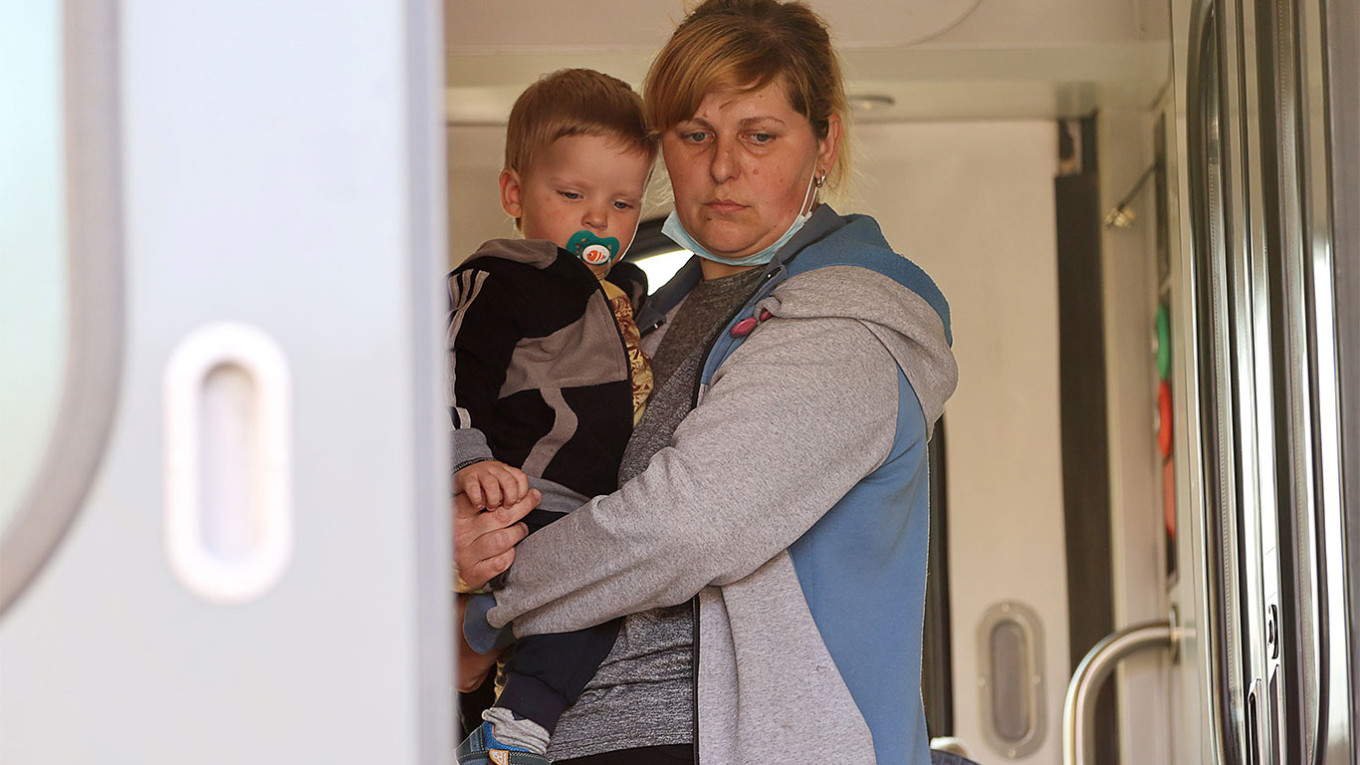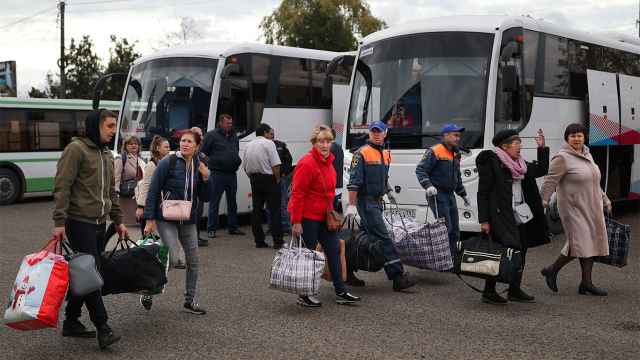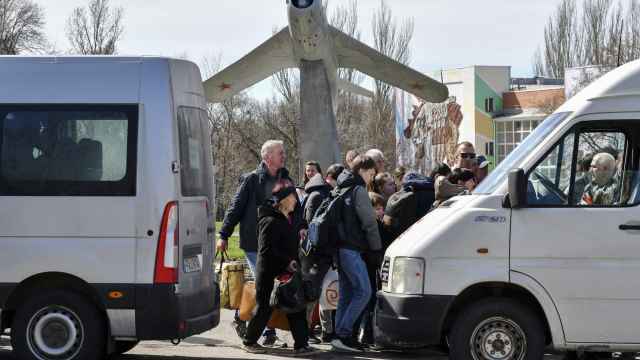Frustrated by the fact that our protests against the invasion of Ukraine had been unable to change anything, a group of friends and I decided that we could at least do some good by using our skills as teachers, artists and psychologists to help those affected by the war.
In March last year, we traveled to a refugee center for Ukrainians to organize a children’s creative program and mental health support. I normally work as an educator organizing theater projects in schools in Russia, as well as running art and performance workshops for adults and teenagers. Many of my colleagues hold similar humanist views, and we invited them to join us.
The visit was challenging for a group of people opposed to the war. We were shocked to find the center was a closed institution policed by FSB officers in civilian clothing, where most of the refugees spent their time watching state television and feeling grateful to Russia for having “liberated them.” Some even supported the war.
For some of us, this posed a moral dilemma. Some of my colleagues have relatives in Ukraine and are fully aware of the terrible things going on there. We found ourselves feeling helpless, angry, miserable, and ashamed, despite the fact that our team was there to help anyone who needed it, irrespective of their views of the war. To prepare ourselves, we had arranged sessions with specialist psychologists with experience in conflict zones, including one who had worked in Beslan following the 2004 school siege.
The residents of the refugee centers we worked at, one in a former Soviet children's summer camp and one in a suburban hotel, were mainly women, children, and pensioners, one family per room. Both centers felt like huge communal apartments with little or no personal space — children would do their homework or play games while the adults would sit around watching state television reports on the war or talk shows fronted by Kremlin propagandists.
The better-connected and more resourceful refugees tended not to stay for long, but those unable to adapt to new circumstances easily tended to stay put in the hope of waiting out the war and then returning home.
Just a handful of those we invited to join our group therapy sessions actually did so. Most of them were preoccupied with the constant stream of bureaucracy familiar to any refugee or were busy rifling through piles of humanitarian aid, trying to find paid work or caring for their children.
Our moral qualms at working with people who felt a sense of gratitude to the Russian state soon dissipated. Neither these people nor their children chose this war and we quickly realized that we all had to deal with the terrible circumstances in which we found ourselves.
The mental health support services we offered at the centers aimed to help people deal with their problems sufficiently to adapt and be able to make some decisions. Focus was given to child welfare in particular, as in many cases parents were dealing with loss and the trauma of displacement and weren't always able to devote sufficient time to their children. By playing games, being creative, and ensuring each child got plenty of attention, we helped them make new friends and to keep up at school.
Some of the older teenagers I worked with confided in me the things they had witnessed during eight years of war, recounted the details of their evacuation from eastern Ukraine, and spoke very personally about subjects including first loves, sexuality, their relationships with their parents, and loneliness. It was clearly important for them to have someone listen sympathetically. While it’s dangerous to do lots of things in today’s Russia, at least some people can continue to do their jobs without fear of persecution.
People who do not support the war in Russia feel like hostages in their own country, never knowing when the state propaganda machine will get to them. There are no longer any illusions that individuals have any influence on government policy — so most people simply focus on their own personal affairs, avoiding anything either public or controversial.
Feeling a connection to the people who have left Russia and with the outside world is very important, however. It lessens the animosity felt on both sides and reduces the distance between the Russians who stayed and those who went abroad when the war started.
Whenever possible, I try not to judge, understanding that each person’s story is unique, and by avoiding generalizations I believe people can support each other more than ever before.
The reasons to stay in Russia or to leave are always personal and therefore different for everyone, even within the activist sector. Those with the option of leaving the country and returning to it are in fact privileged, as there are many on both sides of the border who have no choice but to stay put.
Someday I hope people will want to return to Russia — and that they will be able to do so. The enormous task of rebuilding a country lies ahead.
A Message from The Moscow Times:
Dear readers,
We are facing unprecedented challenges. Russia's Prosecutor General's Office has designated The Moscow Times as an "undesirable" organization, criminalizing our work and putting our staff at risk of prosecution. This follows our earlier unjust labeling as a "foreign agent."
These actions are direct attempts to silence independent journalism in Russia. The authorities claim our work "discredits the decisions of the Russian leadership." We see things differently: we strive to provide accurate, unbiased reporting on Russia.
We, the journalists of The Moscow Times, refuse to be silenced. But to continue our work, we need your help.
Your support, no matter how small, makes a world of difference. If you can, please support us monthly starting from just $2. It's quick to set up, and every contribution makes a significant impact.
By supporting The Moscow Times, you're defending open, independent journalism in the face of repression. Thank you for standing with us.
Remind me later.








